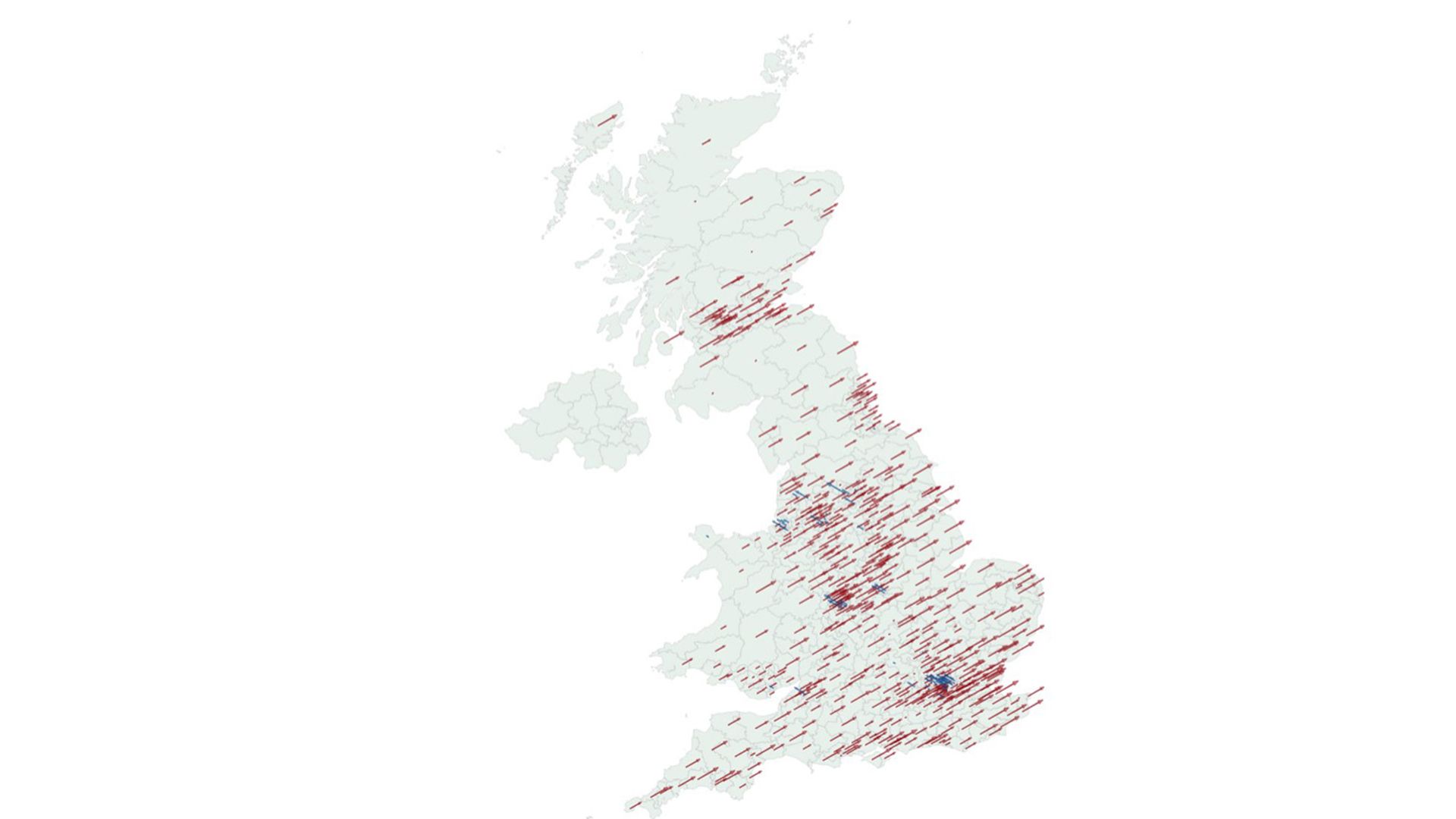The general election delivered a dramatic shift across the country.
That was enough for Labour to gain more than 200 seats. But it wasn’t all positives. They lost in big cities to the Greens and independents and only increased their vote share overall by 1.6 points.
That translated to four Green seats, their highest ever total. The Lib Dems made more than 60 gains, taking the party past recent high-points of the mid-2000s under the stewardship of Charles Kennedy and later Nick Clegg.
Bashing incumbents
This was an election where voters seem to have delivered a damning verdict on the performance of incumbents.
In Scotland, the SNP vote was down 15 points, with Labour up 17. In Wales, while Labour picked up nine seats, its vote was down – 41 points to 37.
Sinn Fein also became the largest party in Northern Ireland after the DUP lost three seats and eight percentage points.
Fighting on two fronts
The Conservatives have collapsed in the face of a challenge on their right, from the Reform Party, while Labour and the Liberal Democrats have taken advantage of the willingness of voters to their left – seeing the government caught in a pincer movement.
Conservatives losing most in their strongest areas
The fall in the Conservative vote was greatest where it started highest.
In seats where the party started above 60%, it lost around 30%, in seats where it started on less than 20% it lost less than 8%.
In contrast, Labour saw the largest rises in its vote in places where it won between 20% and 30% of the vote in 2019 – leaving it well-positioned to take advantage of the collapse in the Conservative vote.
The importance of Brexit
It was the Reform Party that hammered the nail into the coffin of the Conservative Party.
It secured an increase of 12.5 points in its national vote. This was over six points higher in seats that the Brexit Party had not stood in in 2019.
After a number of years in which Brexit shaped the fortunes of the Conservatives (and Labour), the Leave vote in 2016 is now far more strongly correlated with support for Reform rather than the Conservatives.
Tactical voting
Amidst this surge of disillusionment with the incumbent, there is evidence that voters responded to the options on offer to them.
The Lib Dems were up nearly nine points in seats where they started in second place behind the Conservatives, while Labour’s vote was flat.
In contrast, in seats where Labour started behind the government in second place, their vote was up nearly six points.
Another important story of the night was the large falls in the Labour vote in areas with large Muslim communities. The party’s vote fell by nearly 20 points in areas with a population of more than 30% Muslims.
Starmer’s popularity
While Sir Keir Starmer will start his premiership with the strongest majority since Tony Blair, and against an even more wounded opposition, the election result was not neccesarily a ringing endorsement of his popularity.
The party ended with just over a third of the national vote, and received fewer total votes than under Blair in 1997 – when the population of the country was much smaller – or even Jeremy Corbyn in 2017.
The Data and Forensics team is a multi-skilled unit dedicated to providing transparent journalism from Sky News. We gather, analyse and visualise data to tell data-driven stories. We combine traditional reporting skills with advanced analysis of satellite images, social media and other open source information. Through multimedia storytelling we aim to better explain the world while also showing how our journalism is done.











